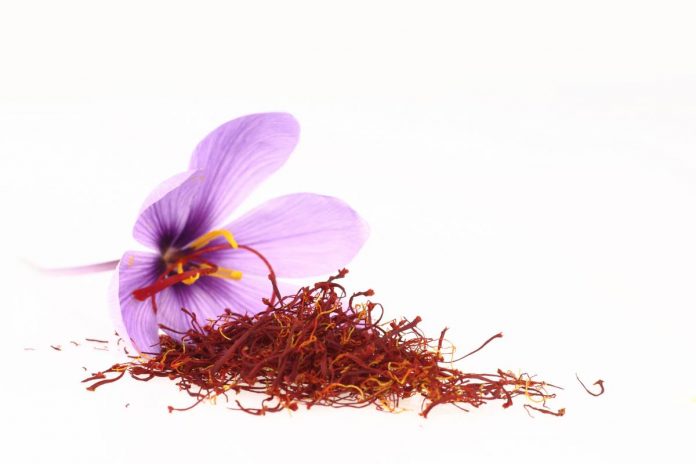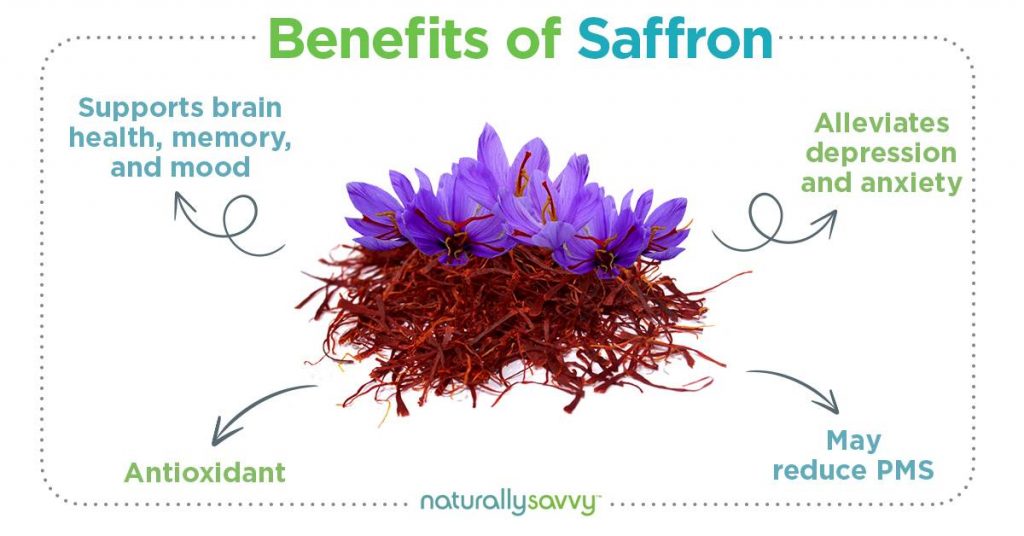
The exotic spice saffron, long-honored and known for being the most expensive spice in the world because of the labor involved in harvesting it, also is known for more. Saffron has potent powers for supporting and promoting brain health and boosting mood.
What is saffron?
Saffron is harvested by hand from the saffron crocus or Crocus sativus flower. The term “saffron” refers to the thread-like structures, or stigmas, of the flowers. Harvesting these threads is challenging, which is why one pound of saffron can cost between $500 and $5,000.
This spice is a rich source of various antioxidants, including crocetin, crocin, kaempferol, and safranal. These compounds have been credited with a number of health benefits, especially those affecting emotional health and cognitive function. That’s why the nickname “sunshine spice” has been given to saffron—because using it can brighten your spirits.
Read about the latest research on gut-brain health
Saffron and brain health
Daniel G. Amen, MD, author of Memory Rescue: Supercharge Your Brain, Reverse Memory Loss, and Remember What Matters Most, has called saffron “nature’s antidepressant.” This vivid crimson spice has been shown to help with a variety of emotional and mental health challenges.
In a five-study (2 placeboes, 3 antidepressants) review, for example, saffron supplements were significantly more effective than placebo in managing individuals who had mild-to-moderate depression. In the three studies that compared saffron with antidepressants, the spice and the drugs provided similar benefits in reducing depression symptoms.
In a 2018 review, investigators evaluated laboratory and clinical evidence concerning the use of saffron in the treatment of anxiety, depression, and other mental conditions. They noted that “saffron and its active constituents possess antidepressant properties similar to those of current antidepressant medications such as fluoxetine, imipramine, and citalopram, but with fewer reported side effects.”
Read about causes of depression: sustained stress changes the brain, brings sadness
Saffron and especially its most active component, crocin, have also been found to provide other benefits for the brain.
- They help prevent spatial learning impairment and memory problems related to chronic stress, according to an animal study.
- Saffron was found to be as efficient as imipramine in a double-blind, randomized trial.
- 30 mg per day of crocin helped enhance the effects of antidepressants (selective serotonin reuptake inhibitors) in patients with mild-to-moderate depression and without significant side effects.
- In a double-blind, placebo-controlled, randomized study, 56 healthy adults with subclinical low mood, anxiety, and/or stress were given either a saffron extract or a placebo. Those who used the supplement had reduced depression scores and an improvement in social relationships after the eight-week study.

Saffron rice recipe
Want to enjoy the delicious taste of saffron while also benefiting from its healing powers? Try this recipe.
- 1/4 tsp high-quality saffron threads
- 1/4 cup hot water
- 2 Tbs extra virgin olive oil
- 3/4 cup minced yellow onion
- 2 cups organic white basmati rice
- 3 cups vegetable stock
- 3/4 tsp salt (if using a low sodium stock, use 1 tsp)
Grind 1/8 teaspoon saffron threads in a spice mortar to a powder. Add the remaining threads to the powder and pour the hot water into the mortar. Soak the saffron for 5 minutes. In the meantime, rinse the rice in a colander and drain. In a large pot, heat the olive oil over medium heat and add the onion. Saute for about 10 minutes. Add the rice to the pot and saute for one minute. Pour the saffron liquid over the rice. Add the vegetable stock and salt. Bring to a boil and stir. Return to a boil for 30 seconds. Cover the pot and reduce heat to simmer for 20 minutes. Turn off the heat and keep the pot covered. Allow the rice to sit and steam for an additional 10 minutes. Fluff rice before serving.
Bottom line
Saffron has demonstrated that it can help support brain health and manage mental health issues such as stress, depression, and anxiety as well as some of the common antidepressants on the market. More research is needed to determine the optimal dosing of saffron for mental health and brain health.










